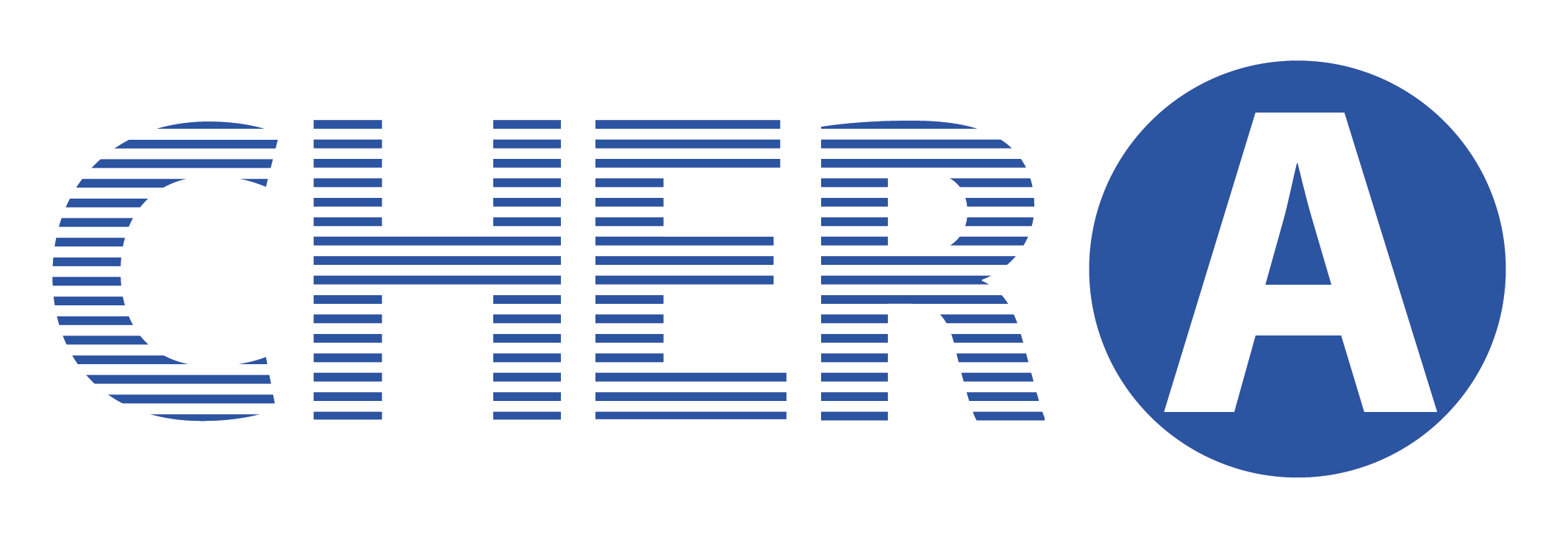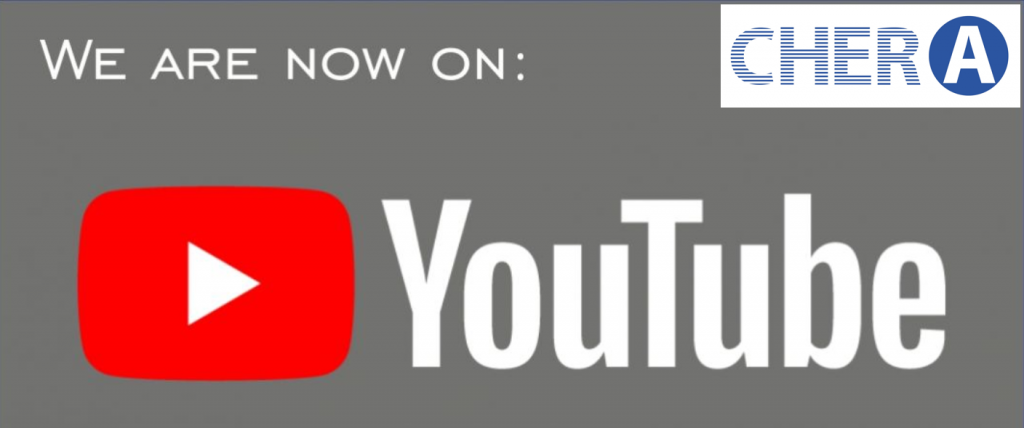
Upcoming seminar
Institutional change in EU-China science cooperation (1998-2025): from expansion to recalibration?

Upcoming seminar: Institutional change in EU-China science cooperation (1998-2025): from expansion to recalibration?
Date: 9th February (Monday), 2026
Time: 3:00pm to 4:15pm
Venue: RMS402, Runme Shaw Building, HKU & Zoom
Speaker: Marcelo Marques, Postdoctoral Fellow, The University of Luxembourg
Chair: Hugo Horta, Associate Professor, The University of Hong Kong
Registration link: https://hku.au1.qualtrics.com/jfe/form/SV_5z2r1EWh7yl83iu
Abstract:
This seminar offers a historical account of how EU–China science cooperation has evolved from the late 1990s to the present. I suggest that institutional change has unfolded cumulatively across four phases: (1) formation and early consolidation (1998–2004); (2) expansion (2004–2014); (3) re-articulation (2014–2019); and (4) recalibration (2019–2025). By mapping cooperation arrangements across the four periods, the seminar shows how cooperation has continued while the arrangements shaping participation have gradually diversified. It concludes by reflecting on what this trajectory suggests about the longer-term institutional evolution of international science cooperation.
About the speaker:
Marcelo Marques is a postdoctoral fellow at the University of Luxembourg, specializing in comparative institutional and organizational analysis. His research explores transnational governance and regionalization processes in the fields of higher education and science, as well as their intersections with other policy domains. He currently serves as Senior Associate Editor of Comparative Education Review.
Doctoral Education and Academia Research in the Global Context: Social Class, Power, and Conflict
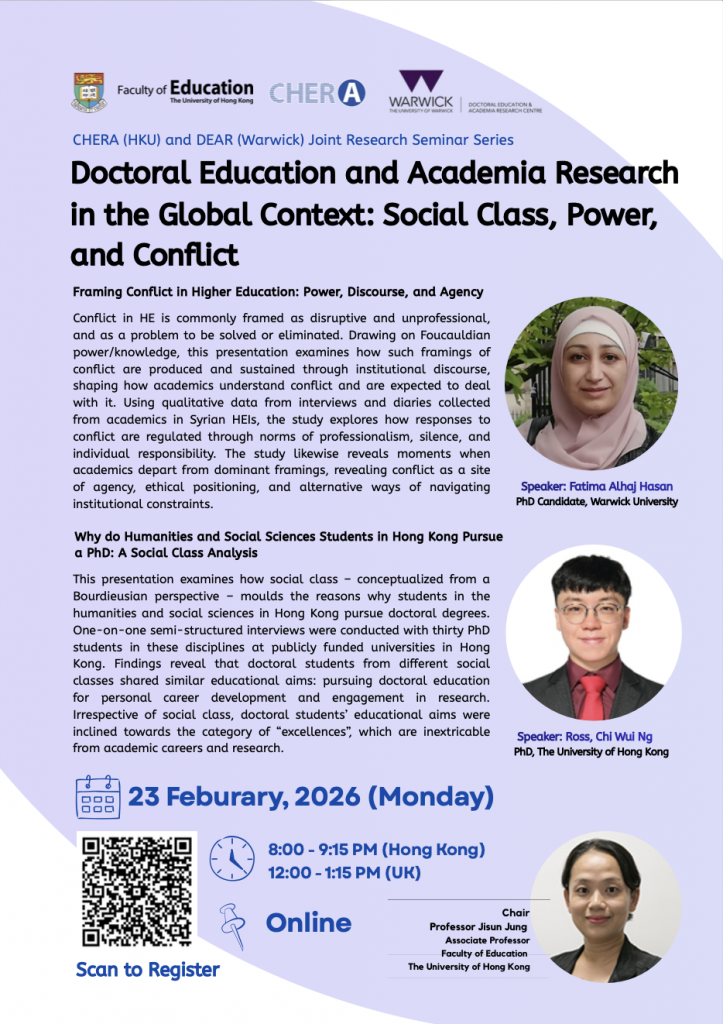
Upcoming seminar: Doctoral Education and Academia Research in the Global Context: Social Class, Power, and Conflict
Date: Feb. 23, 2026
Time: 8:00 to 9:15 PM (Hong Kong) and 12:00 to 1:15 (UK)
Mode: Online by Zoom
Speaker: Ms. Fatima Alhaj Hasan, Warwick University; Dr. Ross Chi Wui Ng, The University of Hong Kong
Chair: Prof. Jisun Jung, The University of Hong Kong
Registration link: https://lnkd.in/gZnaHgdz
Abstract:
Why do Humanities and Social Sciences Students in Hong Kong Pursue a PhD: A Social Class Analysis
This presentation examines how social class – conceptualized from a Bourdieusian perspective – moulds the reasons why students in the humanities and social sciences in Hong Kong pursue doctoral degrees. One-on-one semi-structured interviews were conducted with thirty PhD students in these disciplines at publicly funded universities in Hong Kong. Findings reveal that doctoral students from different social classes shared similar educational aims: pursuing doctoral education for personal career development and engagement in research. Irrespective of social class, doctoral students’ educational aims were inclined towards the category of “excellences”, which are inextricable from academic careers and research.
Framing conflict in higher education: power, discourse, and agency
Conflict in HE is commonly framed as disruptive and unprofessional, and as a problem to be solved or eliminated. Drawing on Foucauldian power/knowledge, this presentation examines how such framings of conflict are produced and sustained through institutional discourse, shaping how academics understand conflict and are expected to deal with it. Using qualitative data from interviews and diaries collected from academics in Syrian HEIs, the study explores how responses to conflict are regulated through norms of professionalism, silence, and individual responsibility. The study likewise reveals moments when academics depart from dominant framings, revealing conflict as a site of agency, ethical positioning, and alternative ways of navigating institutional constraints.
About the speakers:
Fatima Alhaj Hasan — PhD Candidate, Warwick University;
Ross, Chi Wui Ng — PhD, The University of Hong Kong.
When Dreams Collapse: How Disadvantaged Chinese College Students Navigate a Broken Mobility Promise

Date: 5th March (Thursday), 2026
Time: 4:00 to 5:15
Mode: online by Zoom
Speaker: Li Zhu, Assistant Professor, Xi’an Jiaotong-Liverpool University
Chair: Hugo Horta, Associate Professor, The University of Hong Kong
Registration link: https://hku.zoom.us/meeting/register/hN3Kqb8yQbC8N8qT47_ycw
Abstract:
In China, higher education has long been framed as a reliable pathway to upward mobility. Yet for many students, entering university exposes structural barriers that fracture this meritocratic promise. This study examines two questions: (1) What consequences do disadvantaged students face when higher-education-based mobility chances become elusive? and (2) How do they cope with this disillusionment? The findings show that students experience intense emotional distress and cognitive dissonance, and that they employ both emotional and cognitive coping strategies. Emotionally, they turn to therapeutic discourses that promote gratitude, contentment, and non-materialistic concepts of success. Cognitively, they reinterpret meritocracy through a neo-familistic lens that emphasizes cross-generational accumulation of effort. These adaptations illuminate the evolving moral tensions of higher education in an era of rising social inequality.
About the speaker:
Dr. Li Zhu is an Assistant Professor in the Department of Educational Studies at Xi’an Jiaotong–Liverpool University. She holds a PhD in Education from the University of California, Berkeley. Her research draws on sociological perspectives to examine the intersections of higher education, social mobility, and meritocratic beliefs. Her current projects explore international doctoral students’ career choices. Her work has been published in the British Journal of Sociology and the British Journal of Sociology of Education. She also serves on the Editorial Boards of the British Journal of Sociology of Education and the Cambridge Journal of Education.
Doctoral Education Research in the Global Context: Pathways and Knowledge Production
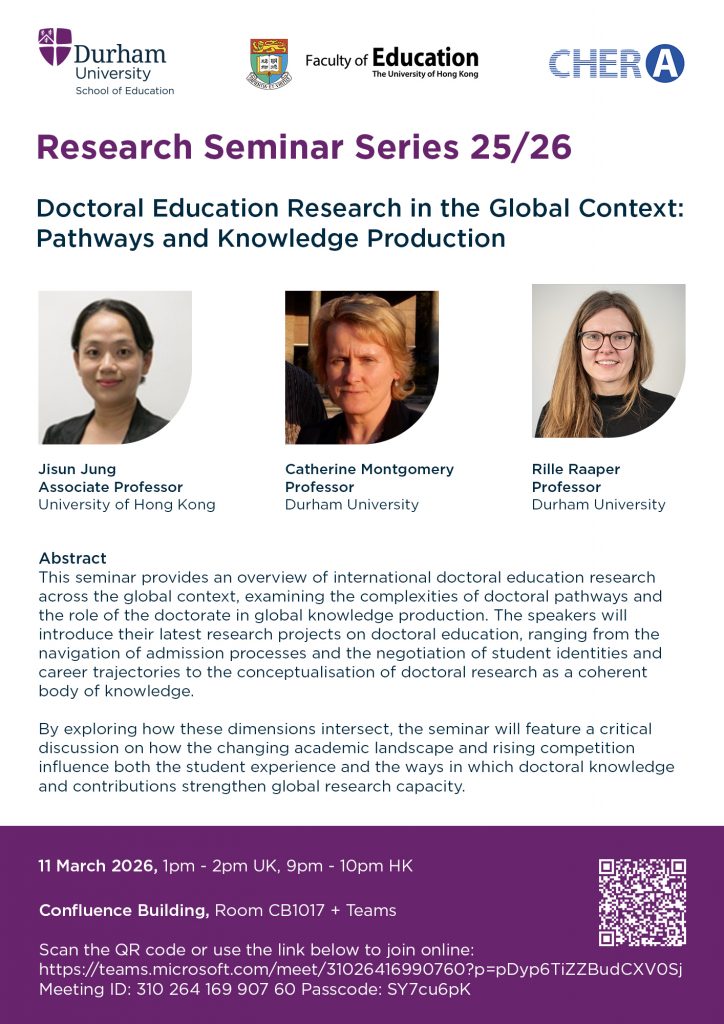
Upcoming seminar: Doctoral Education Research in the Global Context: Pathways and Knowledge Production
Date: 11 March 2026
Time: 1pm – 2pm UK / 9pm – 10pm HK
Venue: Confluence Building, Room CB1017 + Teams
Speaker: Prof. Jisun Jung, The University of Hong Kong; Prof. Catherine Montgomery, Durham University; Prof. Rille Raaper, Durham University
Registration: Scan the QR code or use the link below to join online:
https://teams.microsoft.com/meet/31026416990760?p=pDyp6TiZZBudCXVOSj
Meeting ID: 310 264 169 907 60 Passcode: SY7c6pK
Abstract:
This seminar provides an overview of international doctoral education research across the global context, examining the complexities of doctoral pathways and the role of the doctorate in global knowledge production. The speakers will introduce their latest research projects on doctoral education, ranging from the navigation of admission processes and the negotiation of student identities and career traiectories to the conceptualisation of doctoral research as a coherent body of knowledge.
By exploring how these dimensions intersect, the seminar will feature a critical discussion on how the changing academic landscape and rising competition influence both the student experience and the ways in which doctoral knowledge and contributions strengthen global research capacity.
Institutional Resource Inequality and Research Agenda Setting: Early-Career Academics Navigating Research Grant Competition

Date: 30th March (Monday), 2026
Time: 4:00 to 5:15
Mode: online by Zoom
Speaker: Yingxin Liu (Margaret), Assistant Professor (teaching), The Chinese University of Hong Kong (Shenzhen); Huan Li, Assistant Professor, Xi’an Jiaotong-Liverpool University; Hanyu Qin, PhD student, The University of Hong Kong
Chair: Hugo Horta, Associate Professor, The University of Hong Kong
Registration link: https://hku.zoom.us/meeting/register/MTOUsvVjSS2WibMUhVbuDQ
Abstract:
Within the highly competitive research funding ecosystem, early career academics (ECAs) in mainland China face unavoidable pressures to participate in grant competitions as a prerequisite for academic career entry and progression. Focusing on resource inequality within divergent universities, this study investigates the tactical approaches Chinese ECAs employ to navigate their research agendas tailored to funding demands, alongside comparative insights into how research agenda-setting diverges between elite-forging and non-elite-focused universities. Drawing on resource-based view and mobilization strategies (optimization/bricolage), this narrative inquiry interviewed 30 ECAs across 24 elite-forging and non-elite-focused mainland Chinese research institutions. Findings reveal that grant acquisition is contingent on both institutional and individual resource capacities. To navigate this grant competition, ECAs adopt a hierarchical framework of four strategies aligning with incremental resource availability, ordered as follows: necessity-based bricolage, lean-condition optimization, ideational bricolage, and asset-rich optimization. Institutional disparities underpin this pattern: ECAs at non-elite-focused universities predominantly rely on the first two resource-constrained approaches, whereas their elite-forging university counterparts normally leverage the latter two resource-abundant strategies. These insights offer actionable frameworks for ECAs to thrive amid funding competition, while also calling attention to structural inequities in funding systems that universities and policymakers must address to better support ECAs.
About the speaker:
Dr. Yingxin Liu (Margaret) is an assistant professor (teaching) in the School of Humanities and Social Science at The Chinese University of Hong Kong (Shenzhen), Shenzhen, China. Her research interests encompass higher education internationalization, international mobility, talent management, doctoral employment and employability, research agenda-setting, and gender disparities in academia.
Miss Hanyu Qin is a PhD student in the Faculty of Education at The University of Hong Kong. Specializing in higher education, her research interests include doctoral education and the development of early career academics. She is dedicated to understanding the challenges and opportunities facing the next generation of scholars in the academic workforce.
Dr. Huan Li earned his PhD from the University of Hong Kong and currently serves as an Assistant Professor at the Academy of Future Education, Xi’an Jiaotong-Liverpool University. His primary research focus—traced back to his doctoral studies—has centered on doctoral education, specifically the career development of doctoral graduates, encompassing both academic and non-academic career pathways.
香港大學世紀之問 —— 改革開放初期與內地交流的人和事
HKU in the Early Days of Reform and Opening-up

| 《香港大學世紀之問 —— 改革開放初期與內地交流的人和事》 HKU in the Early Days of Reform and Opening-up |
| 主編:陳婉瑩 Editor-in-chief: Ying Chan 出版:三聯書店(香港)有限公司 Publisher: Joint Publishing (H.K.) Co., Ltd. |
| This book tells the story of 18 individuals who pioneered academic and professional exchanges between HKU and mainland China in the 1980’s. These men and women blazed the trail in eight sectors, medicine, engineering, literature and history, education, architecture, social work, law, and city planning, with expertise and dedication. Our CHERA members, Professors Gerard A. Postiglione and Cheng Kai Ming, actively engaged in exchange and communication with the mainland during the Reform and Opening-up period. They are prominently featured in the book with documents, stories, analysis, and photos. |
Jamil Salmi (ed.) (2023). Transforming Lives at the Institutional Level: Equity Promotion Initiatives Across the World
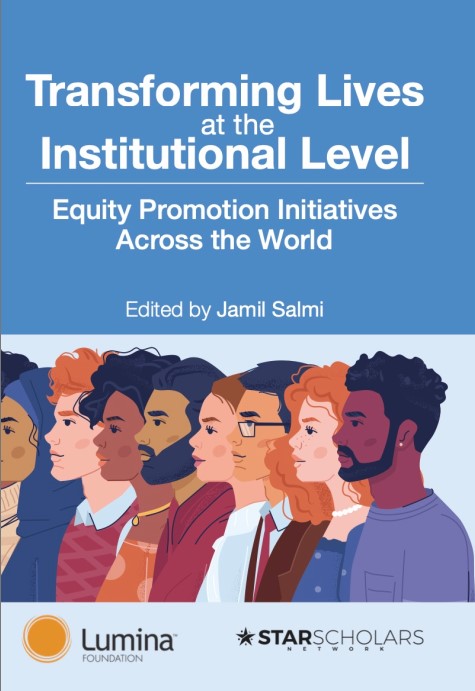
In the ever-evolving landscape of global education, the quest for equitable access to quality higher education remains a pressing challenge. Across the world, countless children and young individuals confront daunting circumstances that impede their educational opportunities due to factors such as race, gender, socioeconomic background, and geographical origin. This particularly affects those in developing countries and marginalized groups globally. To address this issue, promoting inclusivity and pluralism within higher education institutions has become an imperative driven by the principles of social justice and the United Nations’ Sustainable Development Goals.
Throughout Transforming Lives at the Institutional Level: Equity Promotion Initiatives Across the World, readers will gain profound insights into various equity-focused initiatives. From integrating low-income students into university cultures and implementing student aid programs to promoting balanced regional selection and supporting students with disabilities, the case studies offer a wealth of knowledge and good practices. They delve into affirmative action, indigenous inclusion, coaching programs, and many more initiatives aimed at improving access for underrepresented groups. This volume underscores the importance of comprehensive equity promotion policies that encompass financial and nonmonetary aspects. It emphasizes the need for coordination between national and institutional actions, with an equal focus on both access and completion. Long-term perspectives and well-established information systems are essential in effectively addressing equity gaps and measuring progress.
Editor
Jamil Salmi, Global Tertiary Education Expert, Emeritus Professor of Higher Education Policy at Diego Portales University, Chile
Gerard A. Postiglione, Christopher J. Johnstone, & Wesley R. Teter (eds.) (2023). HANDBOOK OF EDUCATION POLICY A New Direction for EU Foreign Policy?
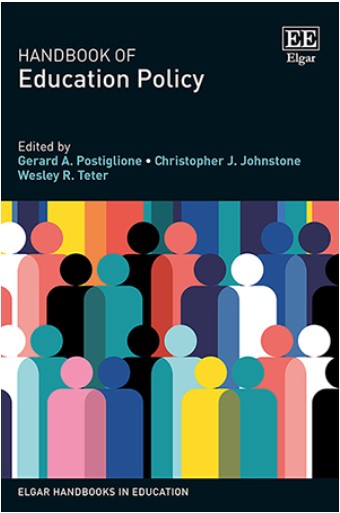
Edited by Gerard A. Postiglione (Professor Emeritus, Honorary Professor, The University of Hong Kong), Christopher J. Johnstone (Associate Professor, University of Minnesota, US) and Wesley R. Teter (Research Fellow, Center for Advanced School Education and Evidence Based Research, University of Tokyo, Japan)
Publisher: Edward Elgar Publishing
‘The new Handbook of Education Policy edited by Postiglione, Johnstone and Teter is a welcome addition to the academic literature on the transformation of education policy in the aftermath of the COVID-19 pandemic. The 22 chapters of this well-researched book give a comprehensive analysis of how education policy must adapt to a radically changed world. Through a skilful combination of thematic pieces and case studies from a large range of countries, the chapter authors challenge us to embrace new education policy concepts, such as public value governance and knowledge democratization, that can foster innovation and accountability in times of uncertainty. Gerard Postiglione, Christopher Johnstone, and Wesley Teter should be congratulated for this excellent scholarly contribution that has the potential of influencing policy makers all over the world to design and implement more sustainable and innovative education policies.’
– Jamil Salmi, Diego Portales University, Chile
‘This Handbook combines an up-to-date overview with theoretically-informed analysis of global education policies. It is erudite, insightful and original. It will be a vital resource for education policy researchers and an excellent starting point for students, in any location.’
– Stephen Ball, University College London, UK
This insightful Handbook is an essential guide to educational policy around the world. As shifting geopolitics, intensified climate change, and widening economic inequalities persist, the need for informed educational policy is critical.
Bringing together a unique collection of international case studies by scholars and practitioners from over twenty countries, the Handbook highlights how the contextual nature of educational policy and its implementation acknowledges both global trends and local nuance. Chapters explore key contemporary topics including the effects of the COVID-19 pandemic on international educational policy; opportunities for academic modernization in Ukrainian society; gender equality in Korean and Japanese universities; and inclusive education policies throughout the developing world, including India, South Africa, and Uruguay. It further discusses the ways in which governmental, non-governmental, and global education specialists are shaping new agendas focused on equity and responding to global crises.
Offering new perspectives on educational policy in a post-pandemic world, this comprehensive Handbook will be crucial reading for students and scholars of education policy, politics and public policy, sociology, and university management. It will also be beneficial for educational research associations and international development agencies, including UNESCO, the Asian Development Bank, and the World Bank.
Click here to access further details about the book.
Book review: Below is the book review for the “Handbook of Education Policy.” You can click on the image to view the full book review or simply click here to explore the book review in more detail.
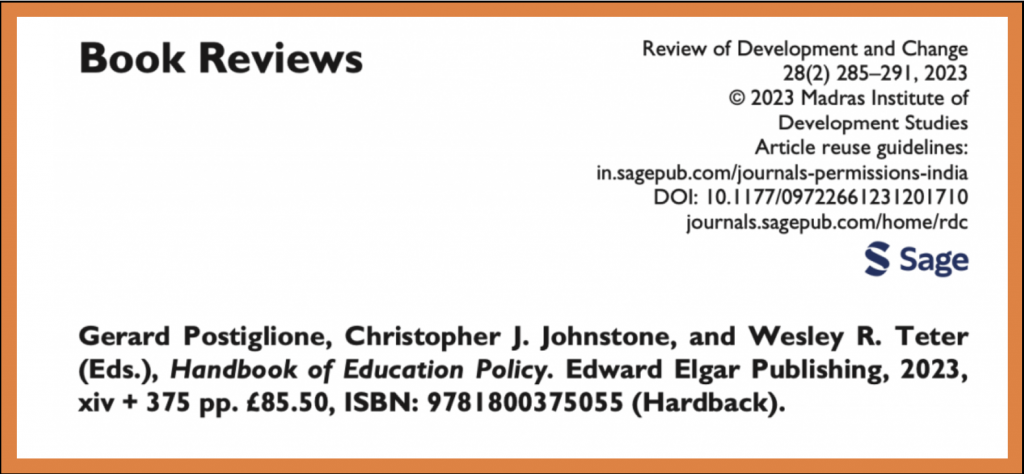
Tilak, J. B. (2023). Book review: Gerard Postiglione, Christopher J. Johnstone, and Wesley R. Teter (Eds.), Handbook of Education Policy
